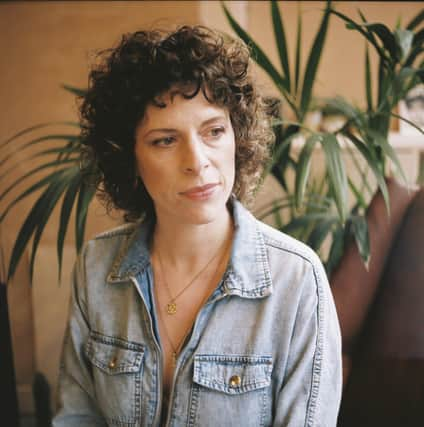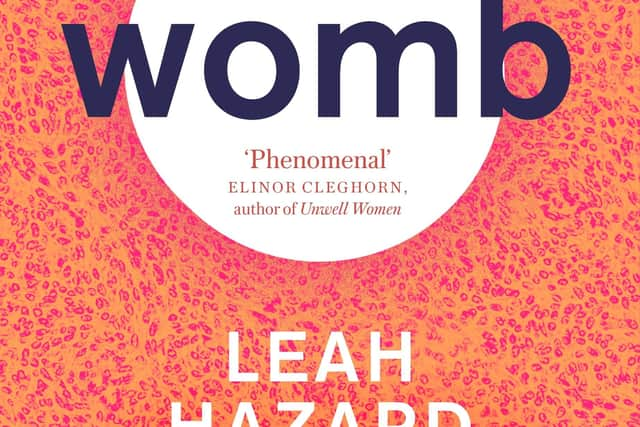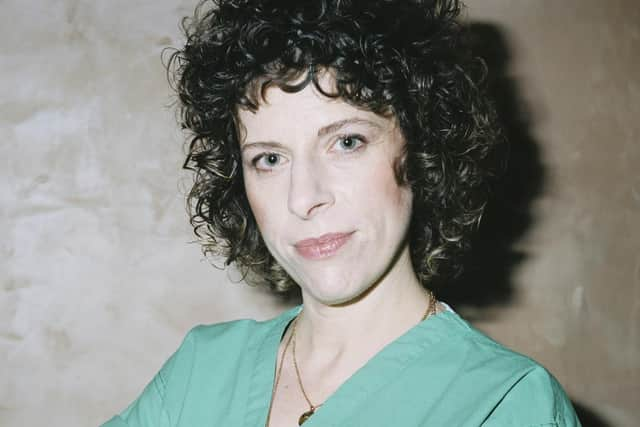Glasgow midwife writes a biography of the uterus, Womb


It’s pear-shaped, around eight centimeters long and half of us own one.
The womb is a fascinating organ, yet has historically been ignored, misunderstood, abused and politicised.
Advertisement
Hide AdAdvertisement
Hide AdIn her new book, Womb, Glasgow-based midwife, author and activist Leah Hazard, who graduated from Harvard University and originally worked in journalism and television, has become a uterine biographer of sorts. She may even be a pioneer, when it comes to this tale.


The idea was conceived while Hazard was exploring ideas for her next book to follow the best-selling Hard Pushed: A Midwife’s Story, which was published back in April 2019.
“I was literally just sitting at my desk one day and thought nobody's actually written a book about the uterus, but we have all these books about virtually every other system in the body,” says Hazard, who is also the author of The Father’s Home Birth Handbook and hosts the podcast, What the Midwife Said. “It seems to be a glaring omission and I still have the email to my agent, just one or two lines. It kind of just grew from there. Although the book is about the uterus, that organ is a lens through which I can look at all these different issues”.
The chapters include Periods, Loss, Hysterectomy and Conception, via stories of orgasm, enforced sterilisation, cervical crypts and Braxton Hicks, all of which are subjects that are meticulously researched, yet always retain a human element.
For instance, even if you live in Glasgow, you probably won’t know about Catherine Colquhoun, who, in 1888 became the first person to have a successful Caesarean section. She named her son Caesar Cameron Colquhoun. In Womb, while telling this story, Hazard imagines what this woman, who was deformed by rickets, might have experienced, rather than making her an anonymous footnote in medical history.


The author also interviews a vast catalog of experts including the Californian doctor who believes women should live period free, a pioneer in reproductive technology and an endometriosis awareness activist, among many others. She observes uterine transplant surgery in Sweden and shares her own tales from the front-line of the NHS including her first time learning how to administer the hormone oxytocin to induce labour.
There is so much to communicate.
“It was a huge task, and I only realised that after the book was commissioned. This topic really could be a 12 volume series, because there's so much we don't know, history to explore and so many personal stories. I had to make a few decisions on how to focus it to make it manageable and ultimately effective and enjoyable for the reader”, says Hazard, who has two children. “At the same time as writing it, I was working as a midwife. And the book was commissioned in the early stages of the pandemic. So much of it was written in lockdown while I was also trying to keep my family alive, doing my work and navigating life. That wasn't ideal, but one of the silver linings was that people who would normally be too busy to speak to me were very generous with their time and expertise during Zoom interviews. So in a sense, that added to the richness of the book. It was a complex task. But hopefully, I've managed to produce something that people will enjoy”.
Its introduction includes an encounter the author had with two young women at the Obstetrics and Gynecology display at the Royal College of Surgeons in Edinburgh, who appeared to squeamishly react to the section, before bypassing it entirely. Beyond the embarrassment factor, the organ is much maligned and the book reveals centuries of ignorance, misogyny and a ‘patriarchal narrative’. Perhaps Womb will go some way towards making the subject more approachable.
Advertisement
Hide AdAdvertisement
Hide AdAfter all, we want to know more about our bodies, as proved by the current medical genre trend, with books like This is Going to Hurt by Adam Kay, Do No Harm by Henry Marsh and When Breath Become Air by Paul Kalanithi topping bestseller charts and - in Kay’s case - even being made into a BBC television series.
Womb, which Hazard thinks crosses “several genres”, is listed under Popular Science.
“That’s kind of funny to me, because I don't necessarily think of it as just a science book. In fact, I've never really thought of myself as particularly good at science. Womb also spans genres. history, social commentary, health and women's health”, she says. “In the area of women's health and reproductive health, there's a vast theme of anger to be mined. I think a lot of women and people in all kinds of bodies are realising that their health has not been prioritised by the medical mainstream and there's a void to be filled in our knowledge”.
In the Future chapter, Hazard discusses uterine transplants, abortion legislation in the US, global inequities and asks us to consider what these things, and our reaction to them, say about us as a society. The fact that the NHS is struggling means that her own plans for the coming years are almost as uncertain and nebulous.
“It's very, very difficult and I don't even know if I will be able to sustain working in the NHS for much longer,” says Hazard, while speaking to me on a rare day off from the ward. “When they talk about the NHS being in crisis, they forget about maternity because it's not considered as acute or front-line as other areas but we certainly are and we feel the same pressures. Things don't look like they are improving anytime soon”.
Womb: The Inside Story of Where we All Began by Leah Hazard is published by Virago in hardback, £18.99
Comments
Want to join the conversation? Please or to comment on this article.